LSAT India
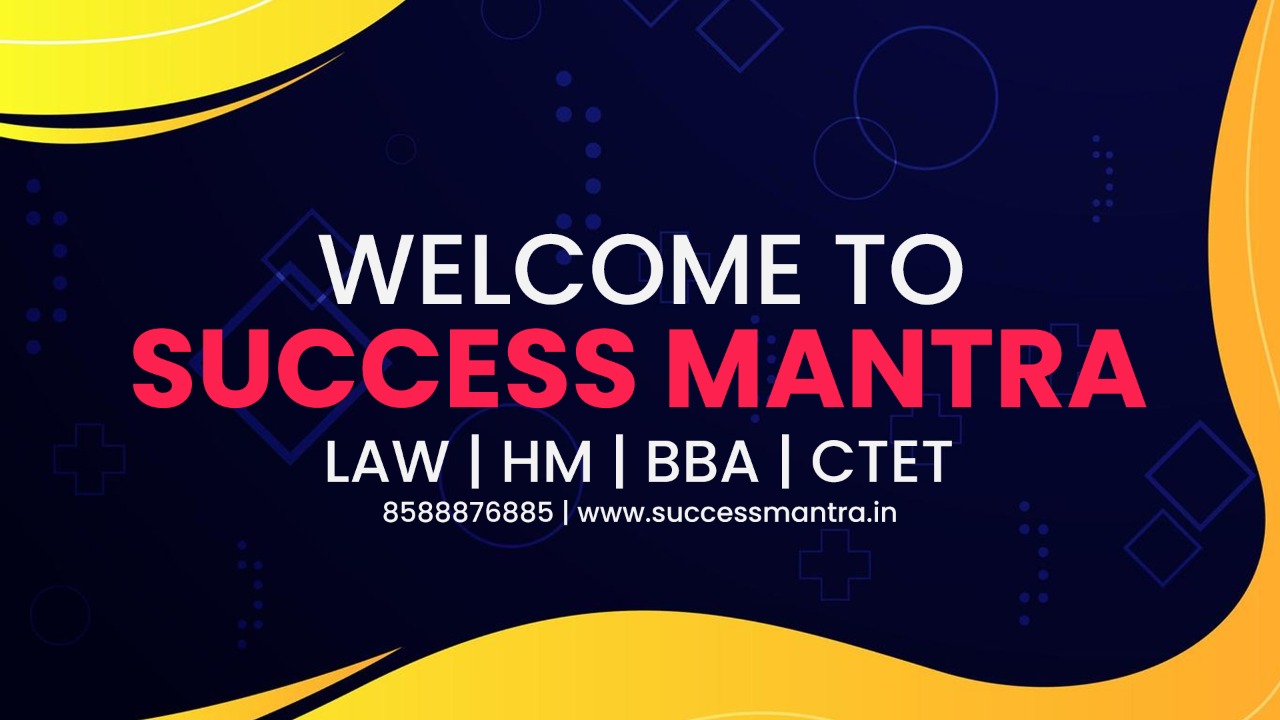
Talk To Our Counselor
Courses

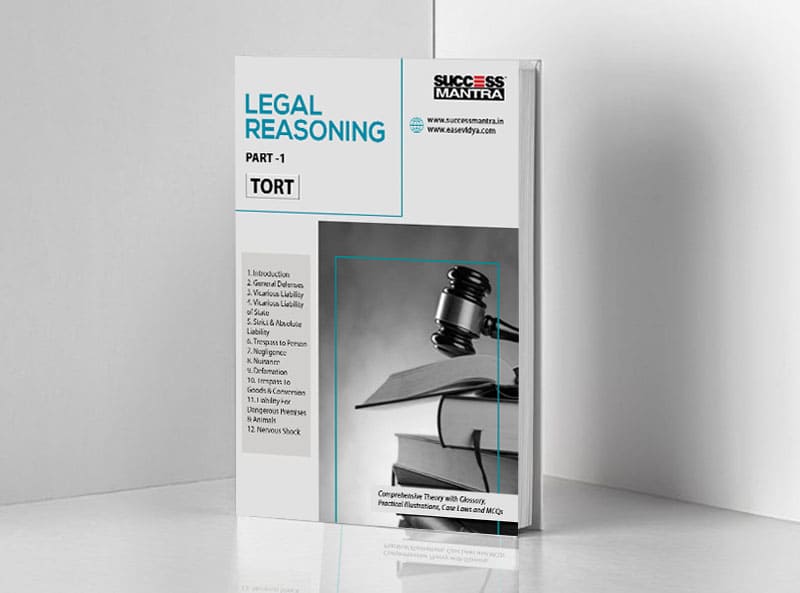

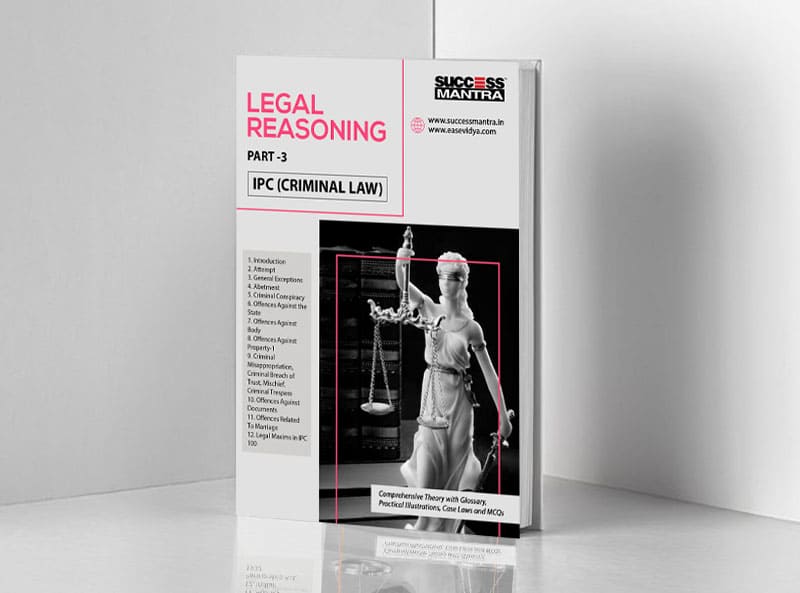
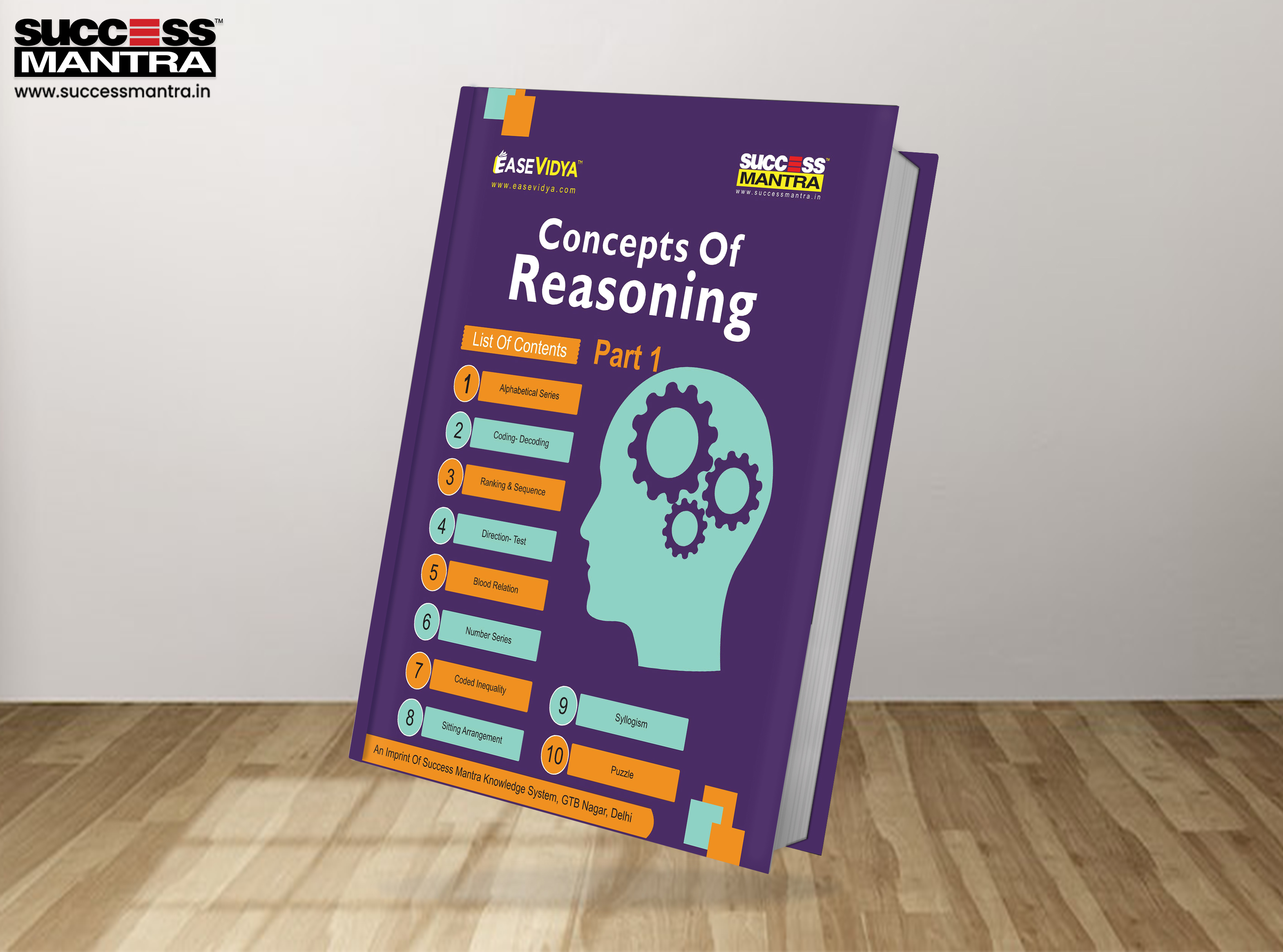
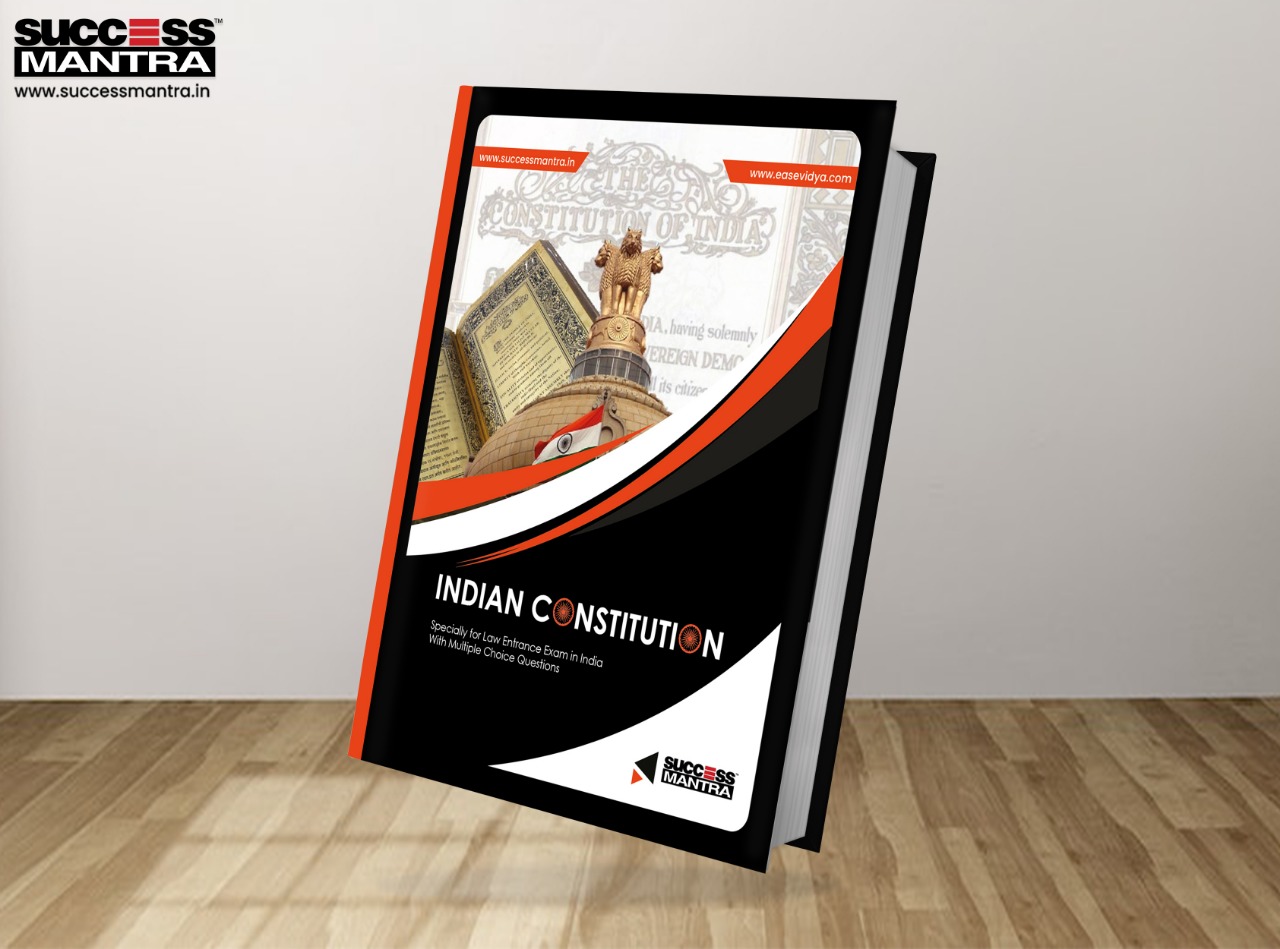










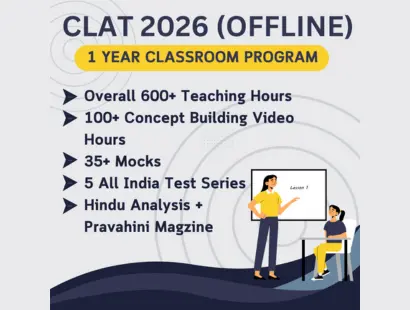

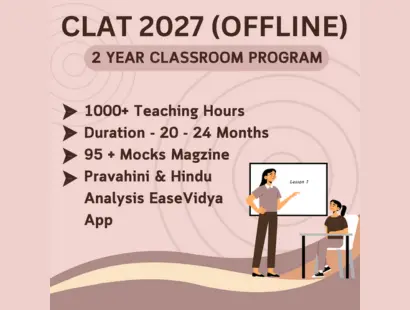
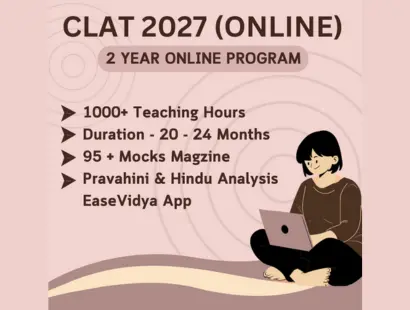




We are always happy to get feedback from our valued users so that we can continue to improve our service(s).

















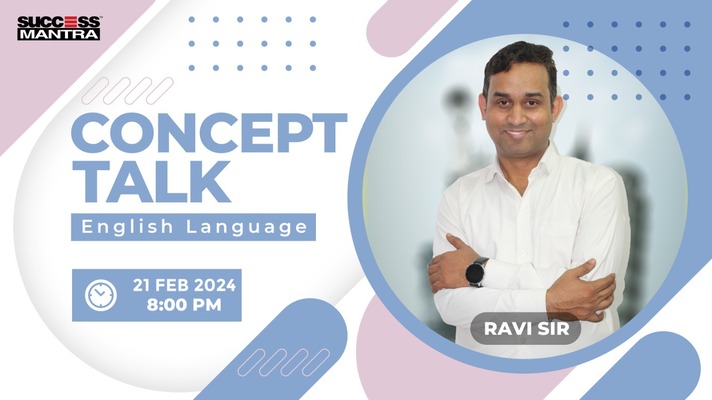

We are always happy to get feedback from our valued users so that we can continue to improve our service(s).
Legal Faculty is the most wonderful and genuine person I've ever seen. He's a true inspiration! He is the best law professor I've ever seen in my legal career. A person is never great merely in terms of intellect, but also in terms of heart, and you have actually accomplished both. I count myself lucky to be a student of yours through this Best CLAT Coaching in Delhi.

Harsh Raj
AIR 70, CLAT
There are no better teachers to be found anywhere else. Everyone, from the management to the lecturers, is honest and dedicated to one goal: to provide the greatest possible opportunity for the students. They provide detailed study materials, regular assessments to assist us exercise, and doubt-clearing sessions for all of us to benefit from. In a word, if you're looking for Best CLAT Coaching in Delhi, go no further. You won't find a better deal than this.

Ishita Bhardwaj
AIR 817, CLAT
I'm incredibly lucky I got to enrol in this coaching. Because it helped me in getting into the college of my choice! I was able to achieve such a high rank thanks to their comprehensive study materials, highly skilled, expert teachers, and regular tests! Success Mantra was quite helpful to me during my trip. Thank you to the entire Best CLAT Coaching in Delhi team.

Simran Sandhu
AIR 157, CLAT
I can't thank the Success Mantrastaff enough for always being so helpful. They rescheduled lessons to accommodate our schools and tutors, and they provided backup lectures, doubt classes, and revision classes. In addition, there are new pattern-based mock tests. And it all helped me enormously in my preparation. Best CLAT Coaching in Delhi by Success Mantrais highly recommended.

Siddharth
AIR 314, CLAT
My experience at Success Mantra is great and memorable. The mentors at this coaching helped us enhance my academic and interpersonal skills. I was good into academics but Success Mantra Mentors helped me to alleviate my subject under-standing with utmost sincerity. I am thankful to this team.

Anmol Sai
AIR 37, CLAT
I was the classroom program student of Success Mantra, Delhi. I really feel that the study curriculum at this coaching was very helpful. They always provide you a competitive environment which propels you to work hard and harder, resulting into better performance. Thanks to everyone.

Sumit Kumar Gupta
CLAT AIR - 4 | AILET AIR - 10
I joined Success Mantra for my CLAT 2023 attempt and the dedicated team there helped me achieving my goal. The classroom study material boosted my scores, both in mocks as well as in the actual CLAT. I would like to express my gratitude to the team Success Mantra for helping me in getting my dream NLU.
Piyush Gupta
AIR 8, CLAT
Success Mantra was significant in helping me in passing CLAT and getting admission to a prestigious university. In terms of conceptual clarity and syllabus coverage, their accommodating classroom coaching setting and doubt-clearing sessions were effective. The extensive material ensured that I didn't have to search for resources too hard. Success Mantra's Best CLAT Coaching in Delhi has helped me tremendously.

Shreshth Goswami
AIR 91, CLAT
Legal Faculty is the most wonderful and genuine person I've ever seen. He's a true inspiration! He is the best law professor I've ever seen in my legal career. A person is never great merely in terms of intellect, but also in terms of heart, and you have actually accomplished both. I count myself lucky to be a student of yours through this Best CLAT Coaching in Delhi.

Harsh Raj
AIR 70, CLAT
There are no better teachers to be found anywhere else. Everyone, from the management to the lecturers, is honest and dedicated to one goal: to provide the greatest possible opportunity for the students. They provide detailed study materials, regular assessments to assist us exercise, and doubt-clearing sessions for all of us to benefit from. In a word, if you're looking for Best CLAT Coaching in Delhi, go no further. You won't find a better deal than this.

Ishita Bhardwaj
AIR 817, CLAT
I'm incredibly lucky I got to enrol in this coaching. Because it helped me in getting into the college of my choice! I was able to achieve such a high rank thanks to their comprehensive study materials, highly skilled, expert teachers, and regular tests! Success Mantra was quite helpful to me during my trip. Thank you to the entire Best CLAT Coaching in Delhi team.

Simran Sandhu
AIR 157, CLAT
I can't thank the Success Mantrastaff enough for always being so helpful. They rescheduled lessons to accommodate our schools and tutors, and they provided backup lectures, doubt classes, and revision classes. In addition, there are new pattern-based mock tests. And it all helped me enormously in my preparation. Best CLAT Coaching in Delhi by Success Mantrais highly recommended.

Siddharth
AIR 314, CLAT
My experience at Success Mantra is great and memorable. The mentors at this coaching helped us enhance my academic and interpersonal skills. I was good into academics but Success Mantra Mentors helped me to alleviate my subject under-standing with utmost sincerity. I am thankful to this team.

Anmol Sai
AIR 37, CLAT
I was the classroom program student of Success Mantra, Delhi. I really feel that the study curriculum at this coaching was very helpful. They always provide you a competitive environment which propels you to work hard and harder, resulting into better performance. Thanks to everyone.

Sumit Kumar Gupta
CLAT AIR - 4 | AILET AIR - 10
I joined Success Mantra for my CLAT 2023 attempt and the dedicated team there helped me achieving my goal. The classroom study material boosted my scores, both in mocks as well as in the actual CLAT. I would like to express my gratitude to the team Success Mantra for helping me in getting my dream NLU.
Piyush Gupta
AIR 8, CLAT
Success Mantra was significant in helping me in passing CLAT and getting admission to a prestigious university. In terms of conceptual clarity and syllabus coverage, their accommodating classroom coaching setting and doubt-clearing sessions were effective. The extensive material ensured that I didn't have to search for resources too hard. Success Mantra's Best CLAT Coaching in Delhi has helped me tremendously.

Shreshth Goswami
AIR 91, CLAT
Overview
Law School Admission Test - 2024
The LSAT India examination is a standardized test designed to evaluate the proficiency of law aspirants on the basis of advanced reading, critical thinking, and informal as well as deductive reasoning skills. Administered by the Law School Admission Council, commonly known as LSAC Global, this test serves as a criterion for admission to both undergraduate and postgraduate law programs offered by affiliated law colleges. LSAC, a non-profit organization, plays a pivotal role in assisting aspiring law students in gaining admission to esteemed private law colleges, relying on their performance in the LSAT entrance exam. The exam is accepted by more than 50 law colleges in India for admission to five-year Integrated LLB courses, three-year LLB course, and LLM course.
|
Particulars |
Details |
|
Name of the Exam |
LSAT- India (Law School Admission Test) |
|
Conduction Body |
Law School Admission Council (LSAC Global) |
|
Courses Offered |
5 year integrated LL.B Course 3 year LL.B Course 1 year LL.M Course |
|
Fees |
INR 3,499 discounted fees INR 3,999 regular fees (without discount) INR 7,998 (fee for January + May sessions)
|
|
LSAT Exam mode |
Online |
|
Exam duration |
2 hours 20 minutes |
|
Subjects |
Analytical Reasoning Logical Reasoning Reading Comprehension |
|
LSAT India 2024 exam date |
May session: 16-May-2024 - 19-May-2024 |
|
Number of seats |
UG Courses - around 3,000 seats PG courses - around 1,500 seats
|
|
Accepting colleges |
More than 50 colleges accept LSAT India scores |
|
Email Id |
LSATIndia@Pearson.com discoverlawindia@lsac.org
|
|
Official website |
-
User Reviews
-
Write Review
0.0 average based on 0 reviews.
What is CLAT?
CLAT stands for Common Law Admissions Test. It is an All India Law Entrance Examination conducted by the National Law Schools/Universities for admissions to their Undergraduate as well as Postgraduate courses. CLAT UG is conducted for admissions under the 5 year - law programme where as CLAT PG is conducted for admissions under the Masters programme.
Who is the conducting body of CLAT 2026?
The Consortium of National Law Universities will conduct the CLAT 2026. It is a permanent body based at NLSIU Bangaluru.
Can we write the CLAT Exam after completion of class XII ?
Yes, you can apply directly for CLAT Examination while appearing for class XII examination.
How can I apply for CLAT 2026?
The application form for CLAT 2026 will be filled online. The online application form can be accessed from the official website.i.e. https://consortiumofnlus.ac.in/ . Usually the application forms are made availlable in August.
How can I join Success Mantra for CLAT?
You can enquire by visiting our center “SUCCESS MANTRA, GTB Nagar” and you can also apply through our website https://www.successmantra.in/contact-us
Why should I join Success Mantra for CLAT entrance exam preparation?
Success Mantra is the pioneer of law coaching institutes in Delhi and we also have an extraordinary result in Law entrance exams. 2000+ students of our students are already studying in the top law colleges of India.
What are the program offered by Success Mantra for CLAT entrance exam?
We provide various types of programs to our students– Leader Batch (1Year Program), Foundation Batch (2 Year Program), Lear Extended Program which includes preparation tragetting other exams such as SLAT, LSAT, MHCET etc
What is the strength of questions in CLAT exam?
CLAT question paper consists of 120 Questions which includes -
- English including Comprehension: 20-26
- Legal Aptitude : 28-32
- Logical Reasoning : 22-26
- General Knowledge and Current Affairs : 28-32
- Quantitative Twchniques : 10-14
What are some Top Law Colleges in India?
The National Institutional Ranking Framework (NIRF) rankings were announced by the Ministry of Human Resource Development (MHRD) for the year 2018. This was for the first time law colleges were ranked by the ministry.
The top 10 law colleges in India are:
- National Law School of India University, Bengaluru
- National Law University, New Delhi
- NALSAR University of Law, Hyderabad
- Indian Institute of Technology, Kharagpur
- National Law University, Jodhpur
- Jamia Millia Islamia, New Delhi
- The West Bengal National University of Juridicial Sciences, Kolkata
- Ram Manohar Lohiya National Law University, Lucknow
- Symbiosis Law School, Pune
- Dr BR Ambedkar College of Law, Visakhapatnam

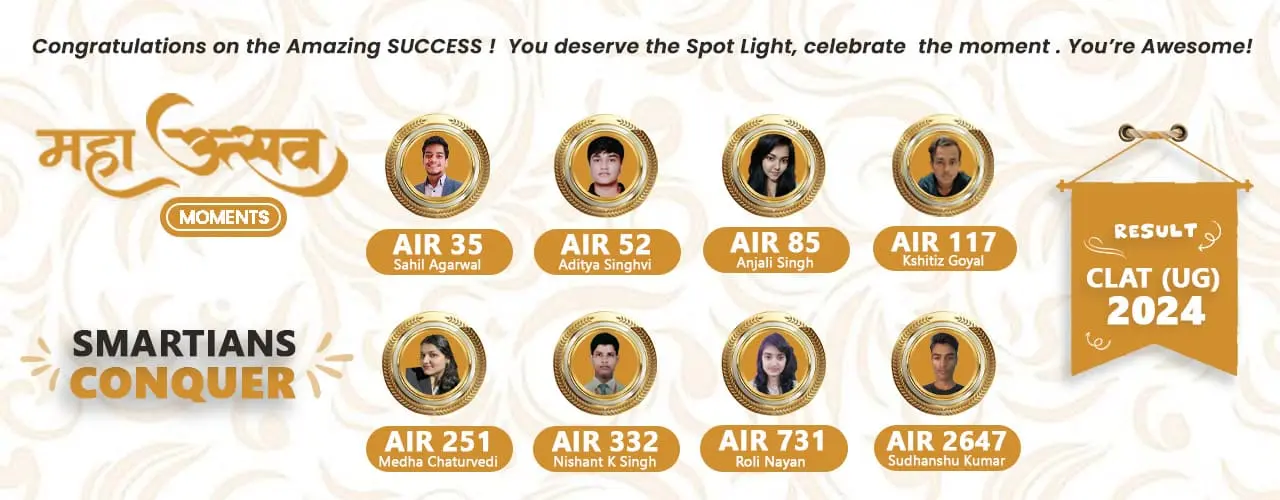
.webp)
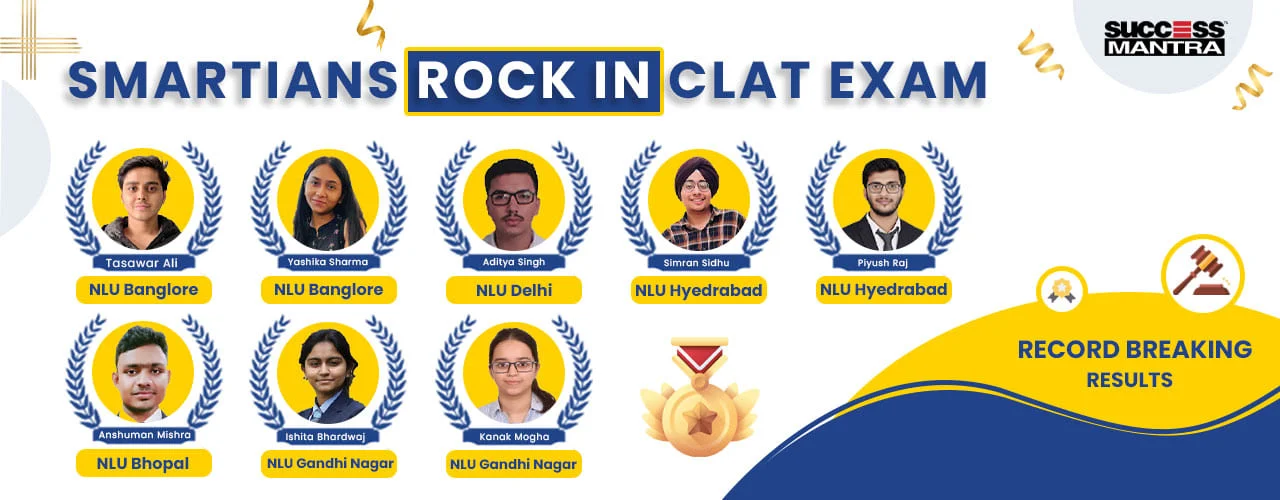
.webp)
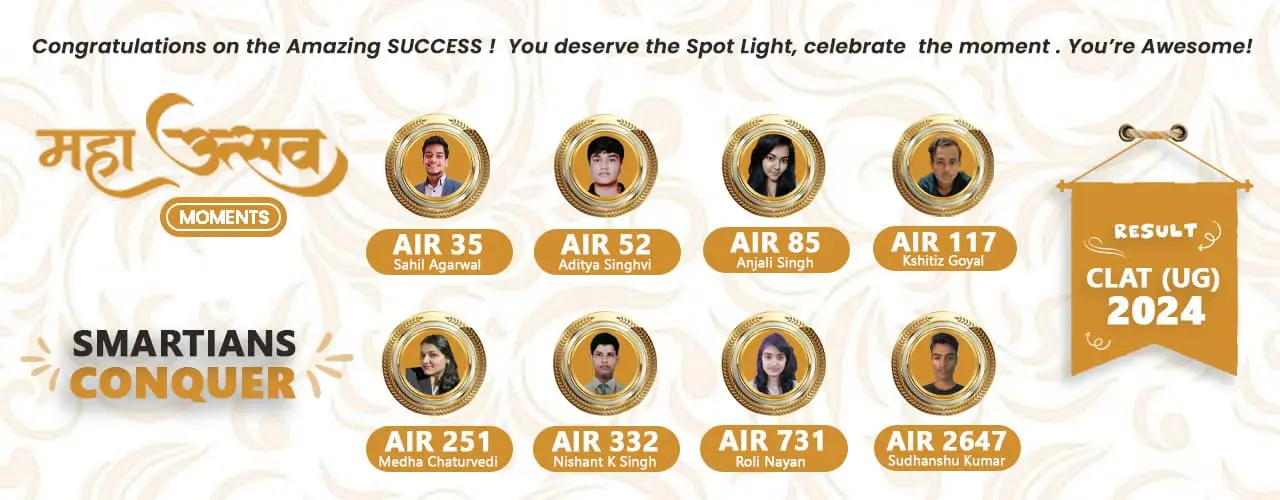






_.jpeg)

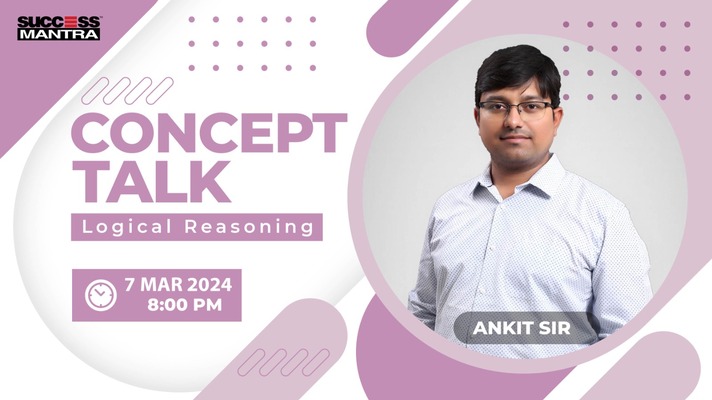
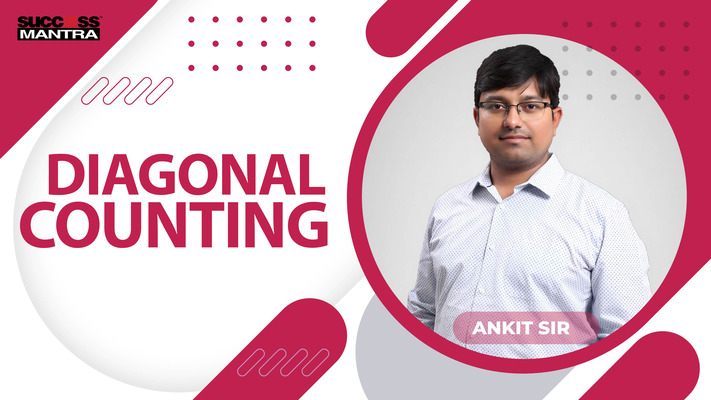
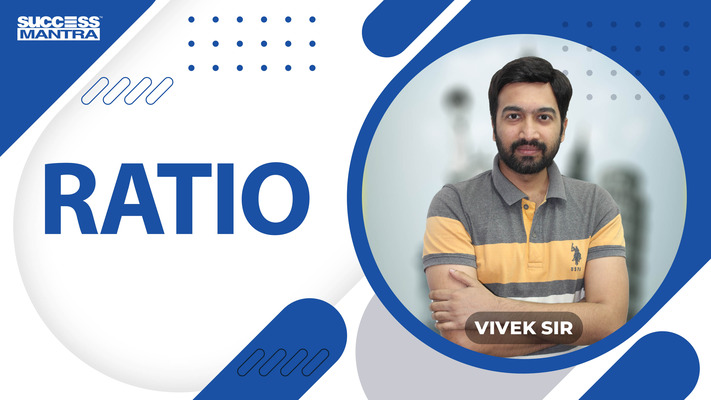
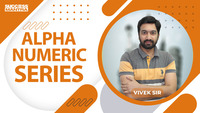

_(1)_.jpeg)


